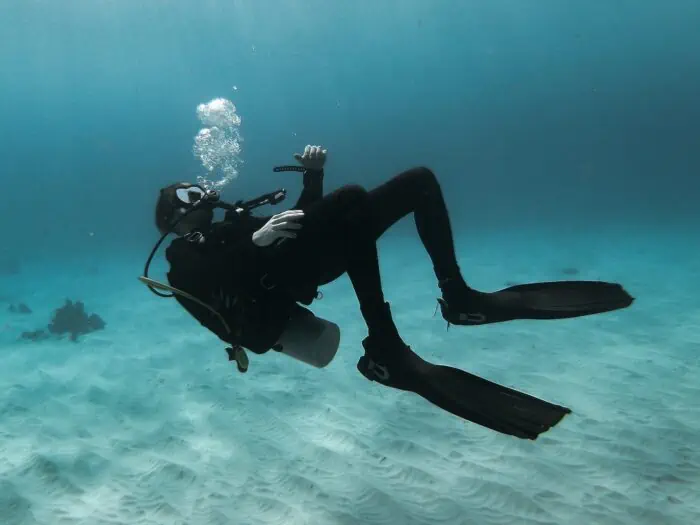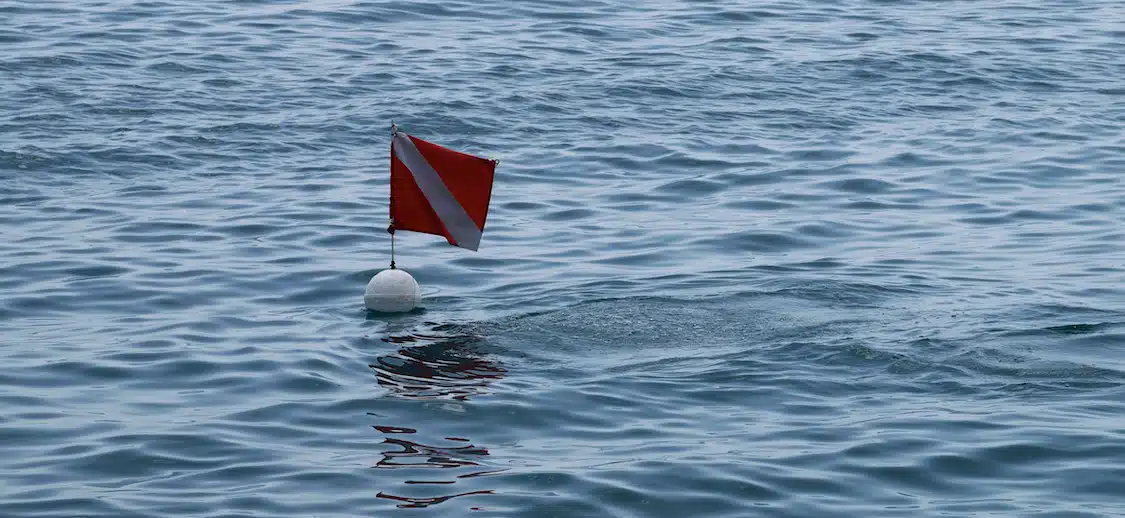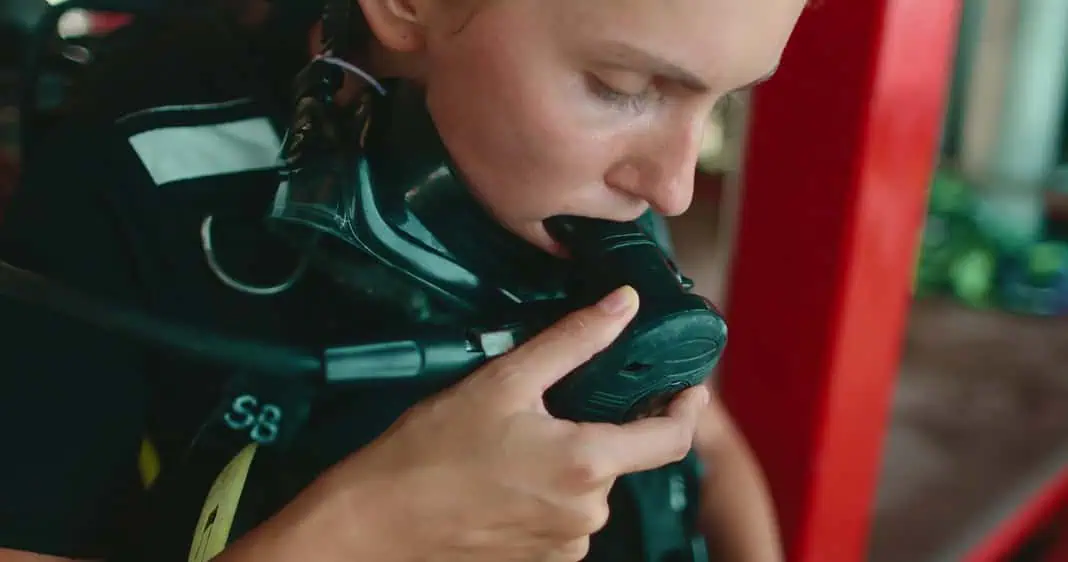The first thing to say about scuba diving insurance is that if you are going to scuba dive, you need insurance! Various things can go wrong when diving, and all of them require medical treatment that is generally specialized and expensive.
So, every diver should carry standalone insurance that covers their diving needs.

Why You Need Dive Insurance
You need diving insurance because the cost of treatment for many diving-related injuries can be astronomical. What is even worse, in many cases, regular travel insurance does not cover you for scuba injuries, lost gear, and so forth.
Take, for instance, Decompression sickness DCS; whether it is a minor or a major case, recompression therapy is the only possible cure. If you are not treated in a pressure chamber, you will suffer lifelong injuries or even worse. And while there is no guarantee that the therapy will succeed, your outlook is bleak without it.
The main issue with recompression chambers is the cost of operation. Almost anywhere worldwide, a chamber’s cost runs at thousands of dollars per hour. Couple that with the fact that a basic chamber session is 2 hours while a more severe case may require an initial 6-hour session, and you can see how the costs can add up very quickly. Things are compounded further by the fact that you don’t only need one session, but you can end up requiring multiple sessions over multiple days, and before you know it, your bill is the cost of a small beachfront property.
While there are plenty of other reasons you should have dive insurance, such as coverage for lost and damaged gear when involved in a rescue, chamber treatment is the most significant factor!
Types of Dive Insurance Coverage
Broadly speaking, scuba diving insurance is split into two parts: liability and individual insurance.
Liability insurance covers injuries to others caused by your actions or negligence. Generally, you cannot be held responsible for others as a non-professional, and liability coverage is unnecessary. However, your responsibility towards others may vary from jurisdiction to jurisdiction. Most nonprofessionals do not need to worry too much about liability insurance.
The other type of insurance is individual and covers you and your possessions for any mishaps while diving. There are many policies around multiple by multiple providers. Some only cover diving, while others are a broader holiday or adventure insurance policy. Some policies only cover you and any injuries you may sustain, while others may also cover your dive gear that I lost and other personal possessions lost in an emergency. Choosing the right policy depends on various things!

Choosing the Right Dive Insurance Policy
There are multiple factors to consider when choosing the right scuba diving insurance policy. While a professional needs to consider the levels of liability coverage, this is not something an amateur needs to generally be conserved with, although there are many others.
Is there a depth/time limit?
Many policies impose a limit on your depth and dive durations. For instance, some policies have a maximum depth of 30m/100ft for recreational diving even if you have a deep specialty and are certified to 40m/~130ft. Once you venture beyond 30m, you are not covered. While rare, some policies have no depth limit like DAN, although even in that case, they do request that if you are doing dives deeper than 130m/426ft, you let them know beforehand.
Destination Coverage
Another important factor to consider with a scuba diving insurance policy is which destinations are covered and which are not. Some policies for risk reasons will exclude certain global areas and countries. It goes without saying that if you were planning on visiting one of these areas, then a policy that excludes them is not right for you.
Coverage limits
What are the coverage limits of the scuba diving insurance policy you are considering? Are you covered for hyperbaric chamber use, and if so, are there any limits on the dollar amount of therapy, or session, or time? Furthermore, will the policy cover your medical evacuation if you have sustained a severe injury in a remote part of the world and need a special aircraft to fly you anywhere? Will your policy cover this evacuation, and for what amount of money?
24/7 Assistance
The best scuba diving insurance policies provide 24/7 assistance in almost every country. Does the policy you are looking at provide this level of coverage? Nothing is worse in a medical emergency than having to email someone and hope for a quick reply; you need to be able to speak to someone ASAP. Imagine when you needed to call 911 or 999, you had to send an email and wait for the emergency services to get back to you; that would be unbelievable! 24/7 assistance in an emergency is a must!
Gear and Types of Diving Coverage
Some policies restrict the diving you can take part in. So, for instance, your policy may not cover technical diving, cave diving, or even recreational rebreather diving. So, you need to find a policy that covers you for the diving you do.
Also, consider where your expensive scuba gear is covered for loss and damage in an emergency. For instance, will your insurance reimburse you if your BCD and regulators are lost while dealing with an unresponsive diver on the surface? Many scuba diving insurance policies cover this type of scenario since they don’t want the fear of having to replace expensive dive gear to stop people from helping in an emergency.
Filing a Dive Insurance Claim
Filling a scuba diving insurance claim is straightforward as long as you have read the small print. Generally, read the small print several times to familiarize yourself and refresh your information before each dive trip.
While each scuba diving insurance company handles its claims process differently, you should remember a few tips when dealing with any insurance issue. First, make sure you keep all the receipts for all your expenses. This applies to medical costs and additional expenses arising from the emergency, like food and accommodation or rearranging flights and transportation.
Second, keep detailed information on the medical emergency, including copies of all relevant medical reports, prescriptions, etc. Often, insurers will require copies of this information to back up your claim’s validity and or extent.
Thirdly, notify your insurer immediately if there is a diving emergency. While some companies happily reimburse you post-event, others insist they handle the crisis and send you to their affiliated chambers and clinics. While this may be an inconvenience, it is often more straightforward since the insurer deals with the finances behind the scenes, leaving you to focus on getting better and healing.
Finally, if any gear was lost or damaged during the incident, file a report with the appropriate authority. Your scuba diving insurance will likely need copies of these to reimburse you for your lost or damaged gear.
Comparing Scuba Diving Insurance Providers
When it comes to scuba diving insurance providers, you have many options. However, as mentioned earlier, there is insurance for professionals and recreational divers. With professional insurance, you need to check for insurance based on the county where you work and the level of insurance required by your agency to maintain your active status.
For non-professionals, many insurers offer similar levels of plans.
However, there is one key difference between the providers. While most providers are for-profit companies, Diver Alert Network is a not-for-profit organization and the oldest diving insurance provider. Furthermore, the DAN is dedicated to improving divers’ safety through training and education, and the money raised from the insurance goes towards funding those activities, not towards the bottom line.
So, when comparing your scuba diving insurance needs, list your requirements and start your comparison, but look closely at DAN!

